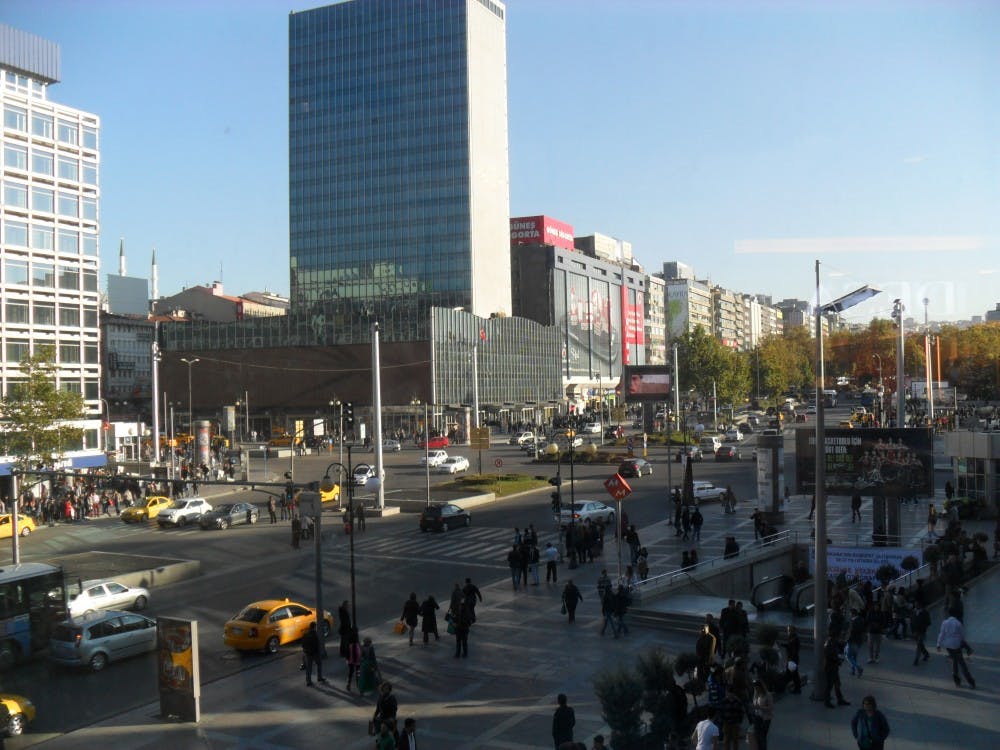
Jaime Molyneux, Penn’s director of international risk management, said nine Penn students and six faculty members were in Turkey during the coup
Credit: Nedim Ardoğa | Courtesy of Wikimedia CommonsWhen members of the military launched a coup attempt against the Turkish President Recep Tayyip Erdogan on Friday, July 15, rising College junior Leo Page-Blau was in his host family’s house, 20 minutes outside Ankara, Turkey’s capital city.
But they were on vacation, so he was alone.
“It probably wasn’t until one in the morning until I started hearing jets,” he said. “I could only really hear jets from one to four.”
He said the houses of his friends who lived downtown were shaking from bombs.
Jaime Molyneux, Penn’s director of international risk management, said nine Penn students and six faculty and staff members were in Turkey at the time of the coup. But that doesn’t count students and employees who are Turkish citizens.
Molyneux said Penn’s Global Incident Management Team knew something was going on even before news outlets were reporting the coup — bridges were closing, and the airports were disrupted.
When that news reached Molyneux, she said “the immediate thing that my office does is pull a report from the Global Activities Registry.”
All Penn students traveling abroad are required to register with GAR, which helps Molyneux’s team locate them in an incident like the one in Turkey. Even though it’s required, though, sometimes it doesn’t happen.
“It’s difficult to get compliance but in situations like this it’s the number one resource for identifying travelers abroad,” she said.
In the case of the coup in Turkey, she ensured everyone was safe and then provided guidance via email.
“There was no call to evacuate, not by the State Department and not by our insurance provider,” she said.
Instead, the recommendation was “shelter in place.”
“Find a secure location and stay inside,” she said. “Definitely do not participate in the uprising, but stay home. We’re always checking on the wellbeing of our travelers, and all reported that they were safe in a secure location and were able to sit tight for the weekend.”
Page-Blau remembered getting that message.
“I mean, it’s really all you can do, in a developing situation, just see how things go, stay inside and be safe,” he said. “No one really knew what was happening.”
By Saturday, the Turkish government declared the coup was suppressed, and Molyneux said “things are stabilizing a bit but it very much varies about where you’re located in Turkey.
Page-Blau said Ankara still doesn’t feel like it’s back to normal.
“I take the public bus by parliament which was bombed every day,” he said.
In fact, he’s considering heading home early now that the airports are up running again and he could easily get a flight back to the United States — which Penn would pay for.
“I’m not concerned about violence in the street,” he said. “It kind of feels like it’s almost making it more likely that there’s gong to be a terrorist attack from ISIS ... because the government is spread thin. It weakens Turkey’s intelligence.”
The plan today was just to go to work like normal and see how it was, and he said “it was pretty messy traffic-wise and lots of police presence.”
With his internship ending Friday, he was planning to travel to Istanbul and do some touring before he left for the United States on Wednesday. Now, he is deciding whether or not to just cut that part out.
The Daily Pennsylvanian is an independent, student-run newspaper. Please consider making a donation to support the coverage that shapes the University. Your generosity ensures a future of strong journalism at Penn.
DonatePlease note All comments are eligible for publication in The Daily Pennsylvanian.







